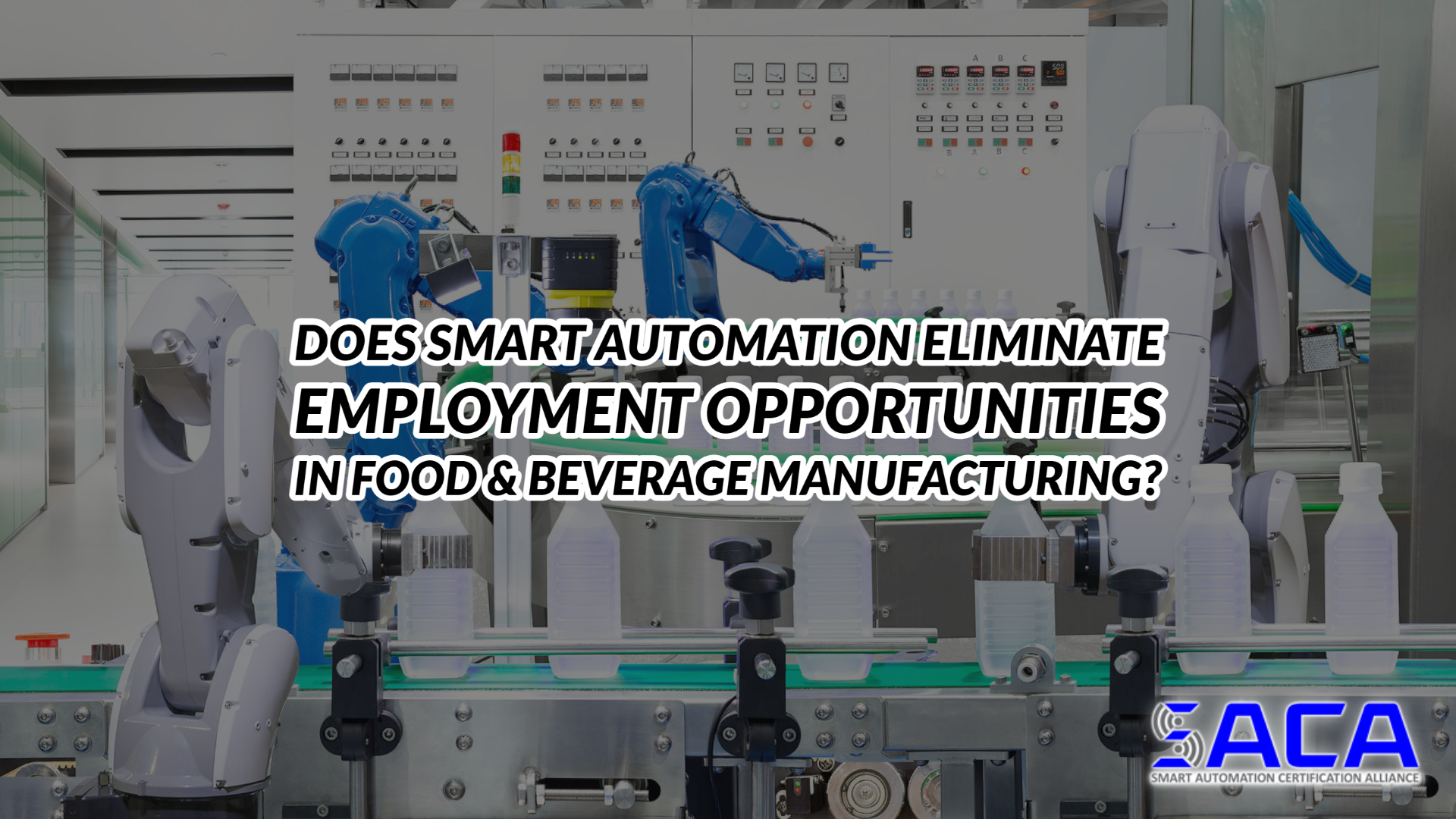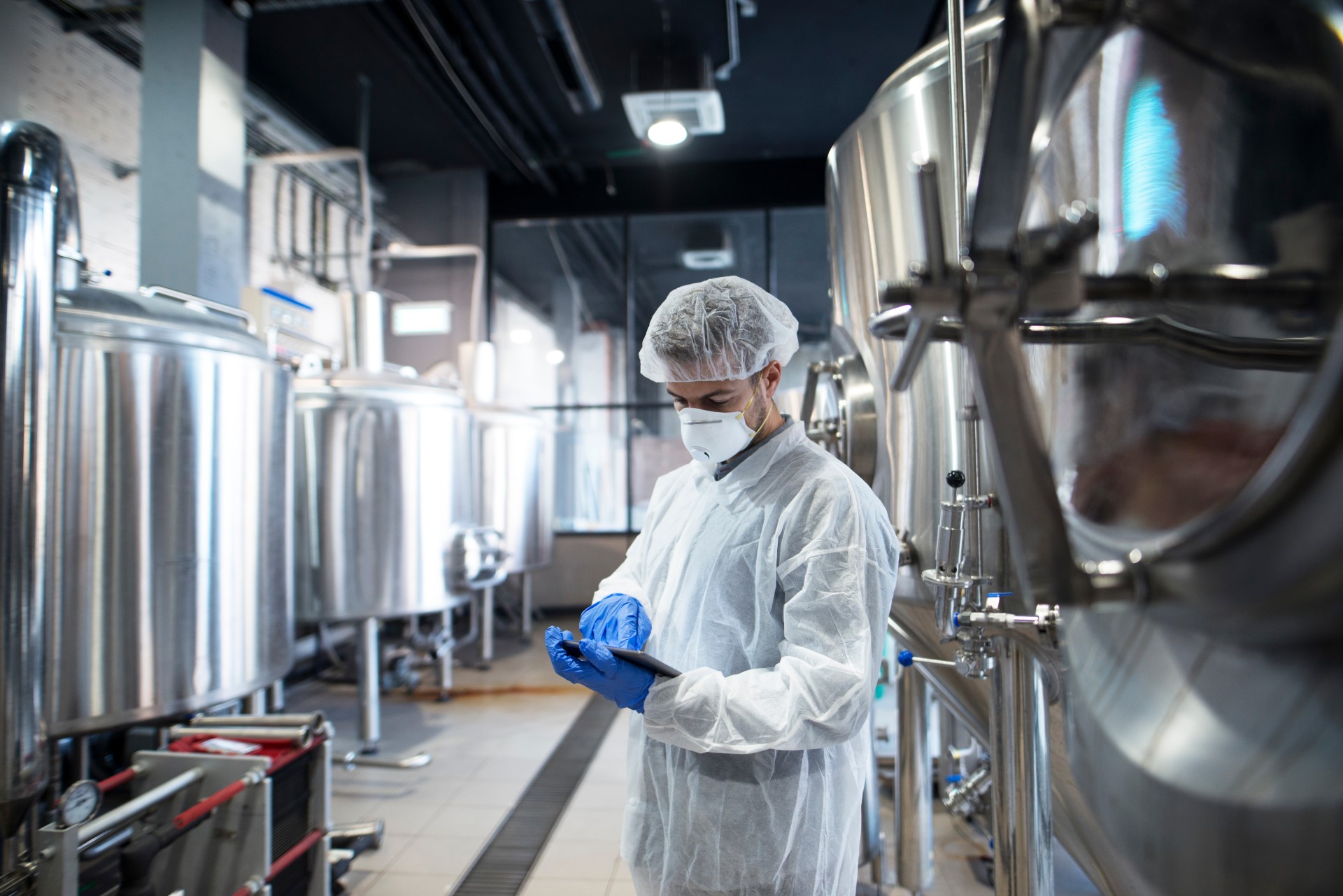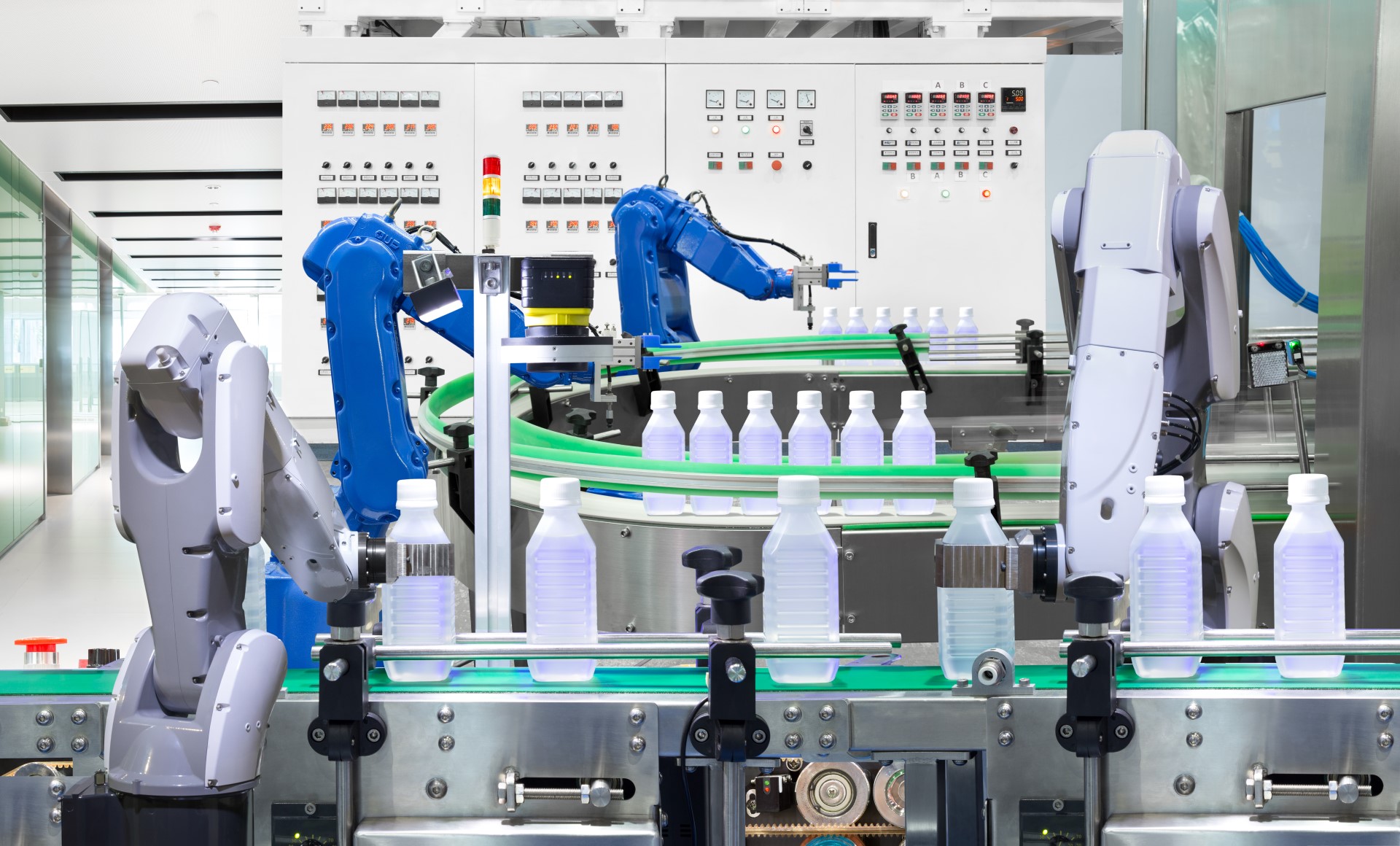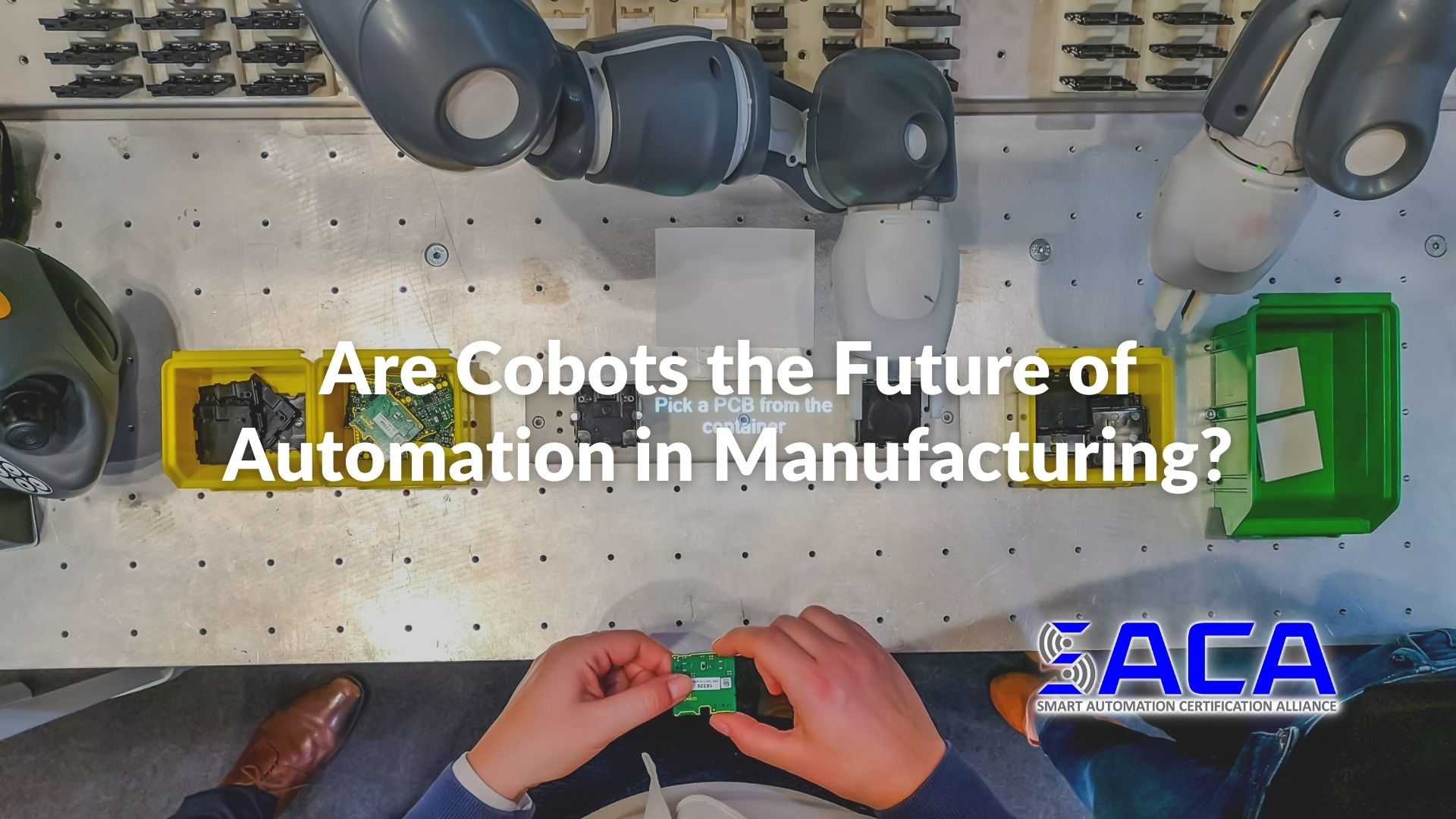
Spoiler alert – no! Contrary to the narrative that evil job-killing robots are coming to limit employment in the manufacturing industry, automation and smart innovations are facilitating: growth, efficiency improvements and well-paying jobs. While it’s true that some plants are struggling to employ enough new workers, the solution to the skills-gap is training. Food and beverage manufacturing environments can be challenging for humans – sometimes featuring extreme temperatures! Interviewed by Food Engineering Mag (.com), David Ziskind, director of engineering at Black and Veatch stated “Focusing on automation in areas where humans are less comfortable is a good place to start”. While automation is leading companies forward, the industry still relies on people. Recent events have put a strain on workers, talking about the fluctuations in customer demands at the beginning of 2020, Fooddive.com tells us, “[…] workers had to simultaneously deal with supply shortages, rapid onboarding of new suppliers, wild demand swings, and fundamental changes in packaging to cater to the shift from foodservice to retail. This happened as stringent new workplace safety rules and remote working caused production labor costs in the U.S. to surge by up to 20%.”

Have You Tried Turning It Off And On Again?
The rapid embracing of industry 4.0 technology in the wake of the COVID-19 is part of, what the World Economic Forum recently coined ‘Great Reset’. This term is often misconstrued by conspiratorial minds, but in reality describes the 4th industrial revolution – ‘a decisive set of actions oriented toward delivering value not only to companies themselves but also to society as a whole’. Technological advancements that have been waiting in the background for more companies to embrace them are now being proliferated throughout industries. People returning to the workforce may find themselves in a complexly modernized environment. This article from Mckinsey.com is optimistic about the reset, ‘by transforming the nature of work through intentional upskilling and/or reskilling efforts, […the great reset is…] empowering workers to realize their potential through new ways of working.’
A Brave New World in Manufacturing
Tyson foods are seeing a major discrepancy between demand for their product and their ability to staff their processing lines adequately, according to a Fooddive.com article Tyson are finding it ‘challenging […] to see the kind of applicant flow necessary to fill the gaps’. The COVID-19 pandemic has led some potential employees to ponder their cost benefit analysis when going to work in areas such as manufacturing, but those personnel could find new opportunities within their existing workplace to acquire more skills, and level-up their employment. New positions have opened up in manufacturing such as:
- Technician
- Support Engineer
- Applications/Software Engineer
- Software Developer
- Service Specialist

All these positions require specialist training and candidates with certification in these areas will be sought out by firms that have embraced industry 4.0. According to this recent Mckinsey study, ‘In Europe and the United States, […] demand for physical and manual skills in repeatable and predictable tasks is expected to decline by nearly 30 percent over the next decade, while demand for basic literacy and numeracy skills would fall by almost 20 percent. In contrast, the demand for technological skills (both coding and especially interacting with technology) is expected to rise by more than 50 percent, and the need for complex cognitive skills is set to increase by one-third.’ Writing for Industry Week.com, the author of Saving American Manufacturing, Michael Collins states, ‘the only viable alternative […for modern manufacturing staffing…] is to focus on investing in advanced training needed for these highly skilled jobs’. And once those skills are in place credentials will be required to properly fill positions within companies.
How SACA can help
Many certifications are available today that address isolated competencies, from machining to maintenance and IT, but SACA certifications are different. They certify “connected systems” skills that address the integration of these technologies with Industry 4.0 technology.
With the help our partners, SACA has created certifications that are industry-driven, developed for industry by industry. They are developed through a rigorous process that begins with the creation of truly international skill standards, endorsed by leading experts in Industry 4.0 technologies throughout the world.
SACA’s Smart Automation certifications use a modular structure to enable them to fit a wide range of individual needs, industries, and educational environments, and are available in three categories – Associate, Specialist, and Professional. Each certification is stackable, allowing individuals to start with one certification and add other certifications to customize their documented skills.
All SACA certifications are occupationally focused, so they prepare individuals for specific careers in the world of Industry 4.0. If you would like more information into SACA’s world-class Smart Certifications, please contact us!
Students that display a flair for lateral thinking will relish roles that involve responding to the automated diagnosis of problems with system components diagnosing problems or inefficiencies in a digital supply network. Maintenance of the processes and components used in an industry 4.0 optimized facilities requires keen critical thinking skills and a deft hand for troubleshooting issues. In addition these skills are valuable to system designers looking to ensure the safest and most efficient product delivery.
Thanks to the help of our partners, SACA has created certifications that are industry-driven, developed for industry by industry. They are developed through a rigorous process that begins with the creation of truly international skill standards, endorsed by leading experts in Industry 4.0 technologies throughout the world.
SACA’s Smart Automation certifications use a modular structure to enable them to fit a wide range of individual needs, industries, and educational environments, and are available in three categories – Associate, Specialist, and Professional. Each certification is stackable, allowing individuals to start with one certification and add other certifications to customize their documented skills.
All SACA certifications are occupationally focused, so they prepare individuals for specific careers in the world of Industry 4.0. If you would like more information into SACA’s world-class Smart Certifications, please contact us!





